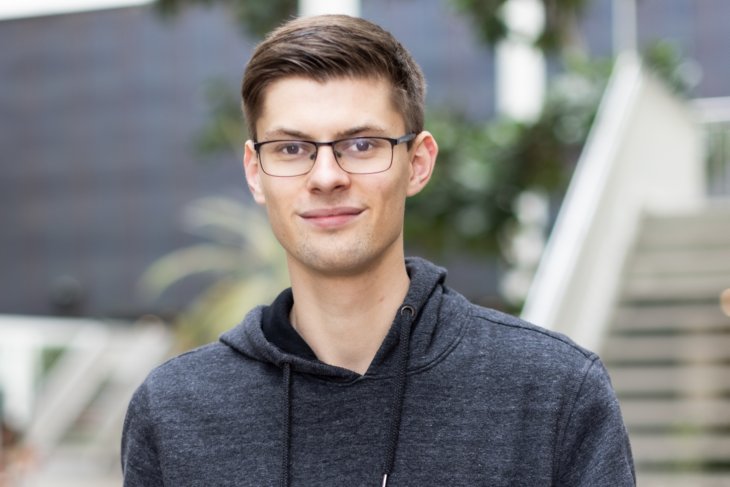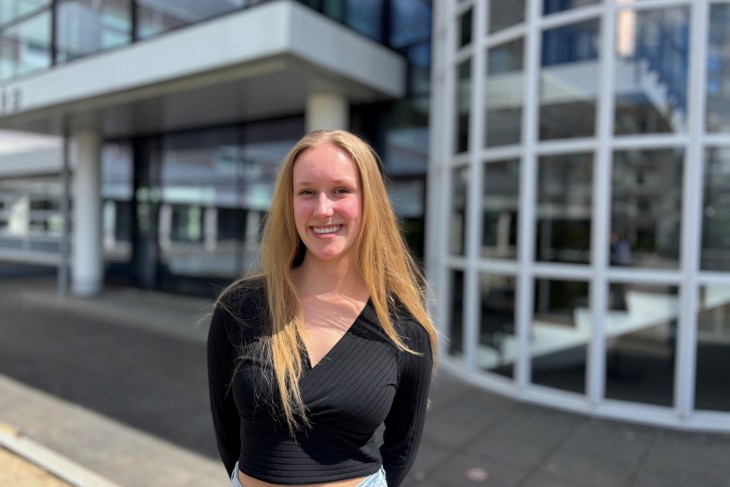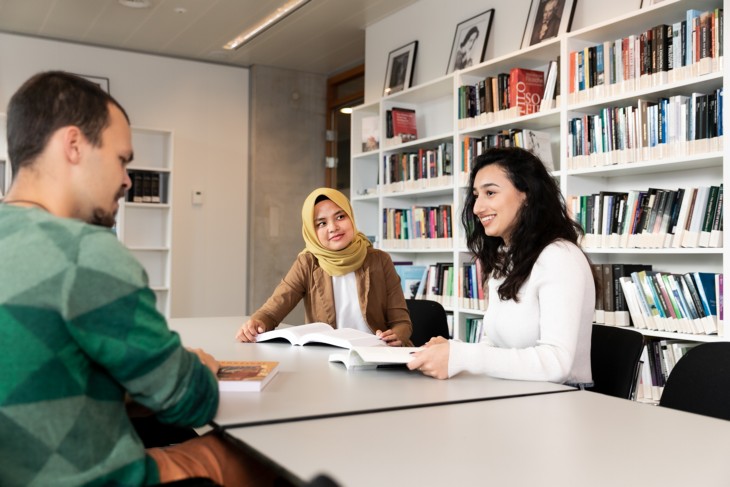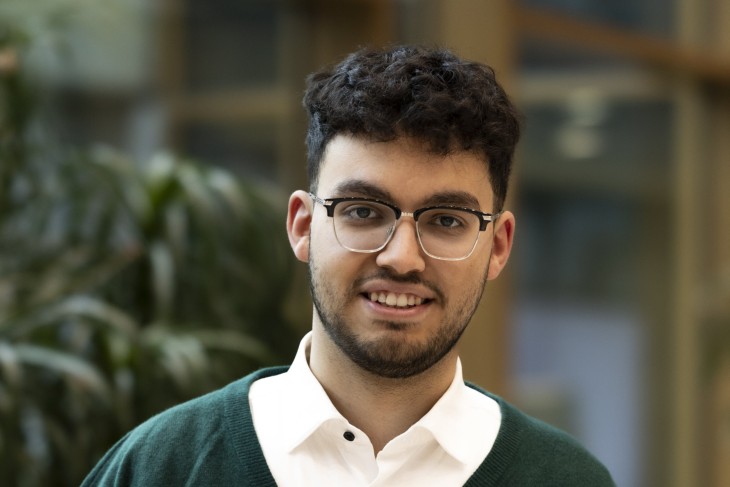“I started studying Geography in Nijmegen because I enjoyed the subject in high school, but I quickly realised it wasn’t for me. The prospective work felt too routine, and it didn't seem like I would be able to make much of an impact. I wanted to do something social where I could help others, and that’s how I discovered my passion for psychology—especially coaching, understanding behaviours, and tackling mental health issues.
I chose the Bachelor’s in Psychology at the University of Twente because I felt a strong connection with the campus: I had visited friends who studied here and immediately liked the relaxed and friendly vibe. The beautiful greenery, the plenty of spaces to hang out, and the sports facilities made it an easy choice.
Modern take on psychology
The programme is broad and covers many different areas like why people think and act the way they do, especially around others. You explore topics like who we are, what drives our emotions, and how groups influence us. My favourite part so far has been learning about mental health—understanding different disorders and how professionals diagnose them is fascinating.
I’ve also loved the communication skills module, which included role-plays. For example, I played a therapist, and another student acted as a client who felt stuck in their life. My job was to actively listen and understand what they were going through, not just jump in with a solution. It was tough for me at first because I’m used to solving problems directly, but as a therapist, you need to help people find a solution themselves instead of giving them yours. Learning to focus more on listening and trying to understand their emotions rather than fixing problems was a big challenge for me.
Technological perspective
This programme is perfect for those interested in how technology is shaping psychology. Think of smartwatches, apps, and online therapy: these can help reduce long waiting times and ease therapists’ workload by providing quick, accessible support for certain issues. For instance, using virtual reality (VR) in therapy can be really helpful, especially for people with intellectual disabilities who struggle with addiction. Traditional therapy, which focuses a lot on thinking and imagination, can be tough for them. With VR, they can experience situations in a virtual world, making therapy more effective.
Looking ahead
For my thesis, I’m looking into why people with intellectual disabilities might be more prone to substance abuse and how mental health professionals can better support them. According to research, those people may experience greater vulnerability to substance abuse, so I want to see how tools like VR can be incorporated into therapy sessions to help them. There are many available tools, and I’m analysing why they aren’t widely used yet, like costs or lack of training for therapists.
My dream is to become a healthcare psychologist — someone who listens to and helps people work through their problems. That’s why I plan to continue with the Master’s in Psychology with a specialisation in Positive Clinical Psychology & Technology at the University of Twente. This is the only specialisation that prepares you for a role in clinical psychology, so it seems perfect for me. In the future, I’m especially keen to work with young people dealing with trauma because I believe that early intervention can make a huge positive impact on their lives.”





